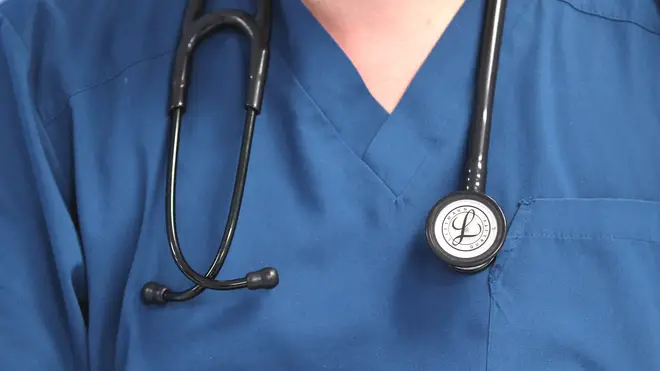
Iain Dale 7pm - 10pm
20 March 2024, 23:34

Researchers said their platform could help doctors when it comes to decision-making and diagnosis.
Artificial intelligence (AI) could predict the type of health conditions a patient is likely to develop in the future, a study has found.
Using the technology in this way could help doctors when it comes to monitoring patients or making decisions around diagnosis, researchers said.
The AI tool, known as Foresight, belongs to the same family of models as ChatGPT, but has been trained using information from NHS electronic records.
It was developed by researchers from King’s College London (KCL), University College London (UCL), King’s College Hospital NHS Foundation Trust and Guy’s and St Thomas’ NHS Foundation Trust.
They trained three different models of Foresight using data from more than 811,000 patients from across two NHS trusts in London and a publicly available dataset in the US.
It was given 10 possible disorders a patient may experience next based on their records.
When using data from NHS hospitals, Foresight was able to correctly identify the condition 68% and 76% of the time. It was accurate 88% of the time when using US data.
Zeljko Kraljevic, research fellow in health informatics, biostatistics and health informatics at KCL, developed Foresight and is first author of the study.
He said the findings – published in The Lancet Digital Health – show the tool “can achieve high levels of precision in predicting health trajectories of patients, demonstrating it could be a valuable tool to aid decision-making and inform clinical research”.
Mr Kraljevic added: “The proposed purpose of Foresight is not to enable patients to self-diagnose or predict their future, but it could potentially be used as an aid by clinicians to make sure a diagnosis is not missed or for continual patient monitoring for real-time risk prediction.
“One of the main advantages of Foresight is that it can easily scale to more patients, hospital or disorders with minimal or no modifications, and the more data it receives the better it gets.”
Foresight’s accuracy was also assessed by medics as part of the study.
Five clinicians developed 34 mock patient timelines with simulated scenarios. When they all agreed on a forecast medical event, Foresight’s predictions also made sense from a clinical perspective 93% of the time.
Senior author Richard Dobson, a professor of medical informatics at KCL and UCL and theme lead for informatics at the National Institute for Health and Care Research (NIHR) Maudsley Biomedical Research Centre (BRC), said: “Foresight opens the door for many applications such as digital health twins, synthetic dataset generation, real-world risk forecasting, longitudinal research, emulation of trials, medical education and more.
“It is an exciting time for AI in healthcare, and to develop effective tools we must ensure that we use appropriate data to train our models and work towards a shared purpose of supporting healthcare systems to support patients.”
The research team is now seeking more hospitals to be involved with developing Foresight 2, which Prof Dobson said will be “a more accurate language model”.
The study formed part of a programme of work that secured funding from the NHS AI Lab, NIHR and Health Data Research UK (HDR UK).
Professor Andrew Morris, director of HDR UK, said: “AI has immense potential to enable scientific discovery, support the prevention, diagnosis and treatment of disease, and improve care pathway management and education.
“This work demonstrates the potential that using electronic health records and the latest advancements in AI could deliver for improving clinical decision making.
“But this is all dependent on the quality and representativeness of data. Sustained investment in the UK’s data infrastructure is needed to enable this in safe and secure ways to maintain privacy and anonymity of people’s health data.”